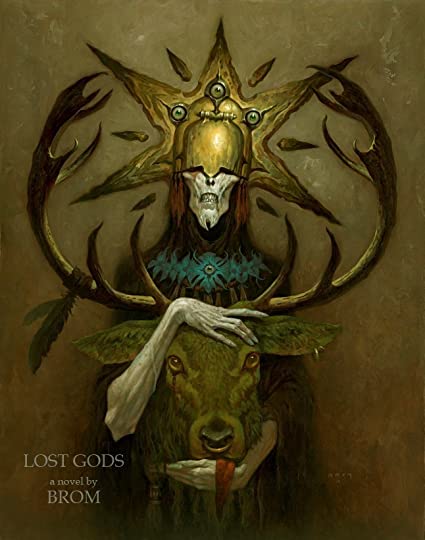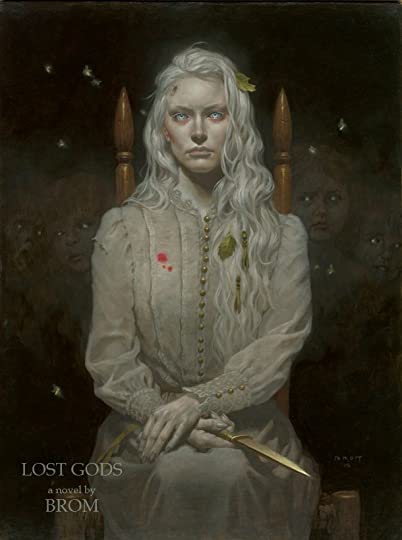I finished reading
Ready Player Two this week by author, Ernest Cline. As a novel, it wasn't as good as the first installment which got made into a movie
. However, even knowing this...knowing that it is generally impossible to catch lightning in a bottle twice in a row...I wasn't prepared for how "dystopian" the world of
Ready Player One actually is. And maybe I should have been. In the first book, the character of Daito got murdered when he was thrown out a window by Sorrento. The event is shocking in the book (not seen in the movie), but it was easy to ignore some of those things (like the stacks getting blown up by IOI/Sorrento), because the Oasis was so much fun visualizing it all.
Ready Player Two picks up where the novel pretty much left off. It turns the page and quickly closes a chapter on the Wade and Samantha romance because Wade is pretty much a huge douchebag. He's like the stereotypical incel character that you hear about on the news, who is really into video games and gets so enraged when women rebuff him that he commits crimes. I was really surprised by this, but I probably shouldn't have been. Wade was always this character, I just refused to see it. Even though Wade shares "ownership" of the company they formed that took over the Oasis, he consistently talks over Samantha and doesn't listen to a thing that she says. She ends up breaking up with him after only a week, because he's changed so much.
Because Wade is Halliday's heir, he wears the "Robes of Anorak." This pretty much makes him a god in the Oasis. So, what does he do with that power? He monitors all the chats for anyone who disparages him in a public way, and then kills their character with a level 99 Finger of Death spell by teleporting to their location while invisible and then snipes them off. He also stalks his ex, Samantha (Artemis), by watching when she logs onto the Oasis, and then he sifts through her private conversations. It's actually super creepy, and I have no idea why Ernest Cline went this direction with Wade in this book.
At the soul of this book is a new discovery that means huge implications for the human race, and it is through this discovery that Wade regains an opportunity to patch things up with Artemis. However, it all seems just a bit too contrived that she'd forgive him for all the creepy things he does and immediately fall back into his arms (which is pretty much what ends up happening). The discovery is another Easter Egg left by Halliday in a corporate vault: a pair of glasses that when worn turn the entire Oasis into a holodeck simulation from Star Trek. In other words, you can feel the wind on your face, you can taste food, you can feel pain and pleasure, etc. All it requires is that anyone who wears it must fork over their brain patterns to this thing for up to twelve hours a day. Any more than this, and you would risk lobotomizing yourself, as the human brain cannot put up with that kind of connection for longer than that. And therein is the plot of the book: by setting a limit on this new headset, the plot has to take us there in a "what if" scenario that evolves into a huge world engulfing crisis.
When Wade announces the new headset to his friends who control the corporation, Aech and Shoto both think it is amazing. Artemis thinks the world isn't ready for the technology, and in many ways she's right. Once again, Wade votes her down and then they go on to patent and sell the glasses to the public. They make so much money on them that they are able to pay off the national debt of the United States. While Artemis/Samantha uses her share of the profits to try to improve the world they live in (the real world), Wade just thinks the planet is f*cked anyway and he, Aech, and Shoto spend their money creating a spaceship that they can fly to Proxima Centauri, a nearby star system that may have planets that can support life. The trip will take 43 years and they will just have their bodies plugged into the Oasis the entire time, so they won't care. Basically, pack up, skip town, and kiss the planet Earth goodbye. You can really see why Samantha wants nothing to do with Wade.
And then, the villain of the story shows up: Anorak. This was the avatar of the now dead Halliday character, but you come to find out that Anorak is a ghost in the machine. He's an artificial intelligence that can think for himself and has Halliday's memory as well as many of Halliday's worst vices that are very "incel-like." He asks Wade to solve a puzzle left behind by Halliday, and he has to do it within twelve hours. If not, then everyone...billions of people worldwide...will not be able to log out of the Oasis, and they will all experience brain death because they are all using those headsets that Wade sold. And this number includes Wade. The only major character who refused to wear one of those new headsets was Samantha, who still logged into the Oasis using the old haptic gear from the first book. She manages to log out, so Anorak tries to kill her by having the plane fall out of the sky (similar to the events of 9/11).
And then the rest of the book is just puzzle solving to beat Anorak's timer (and to come up with a way to beat Anorak without having to destroy the Oasis with the big red button). The book has a happy ending, but in many ways it seems very contrived. I'm not sure why Wade and Samantha reconcile and become a couple again, but maybe it has something to do with personality disorders and codependency.
Ready Player Two ended up being the book that I honestly think didn't need to be written. The new headset is cool, and so are the implications of what such technology could do for the human race. But for those saving graces, the nostalgia from the eighties became a bit much. I mean there's a part in the book where they have to take on seven different versions of the Artist formerly known as Prince in a musical competition to the death while being aided by Morris Day and Janet Jackson and the Rhythm Nation. I was like...eh...this is dumb. Entertaining...but dumb. If anything, reading Ready Player Two made me realize that the original story was always a depressing vision of the future of the Earth, and that if everyone had the ability to escape into the Oasis, then no one would ever interact in person with each other ever again. It would be the end of the human race...an extinction by apathy for real life. I think that I much preferred not knowing about all of that, and should have just left well enough alone with the first book, and it's somewhat "Happily Ever After" ending.
I know that the movie is being directed and produced by Steven Spielberg, and I think it is set to come out in 2022. I just hope that Spielberg does what he's famous for doing and that he changes practically everything in it. In tone, it should match the first movie. And I hope that he makes Wade into a likeable character and ditches all that creepy, stalker stuff. I also hope that the movie packs a powerful environmental message of hope, instead of going "all in" on Wade wanting to flee the solar system by using his wealth to escape a dying Earth. I also hope that they skip that battle with Prince. It went on for way too many pages.














